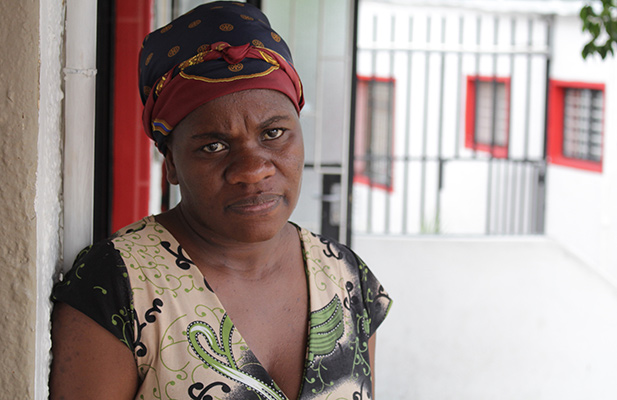
Marcelina Gaingos
On Friday, December 8, 2017, in Windhoek, Namibia, Marcelina Gaingos was picked up for violating a restriction order. Police deposited her in a cell at the police station and left. Marcelina Gaingos stayed in that cell for three days, without food or water and without a bed. Marcelina Gaingos is 34 years old, and was pregnant at the time of her arrest. Marcelina Gaingos was released after three days, largely, perhaps only, because her family raised a ruckus. Traumatized, weak, starving, she was taken to hospital. Then she was immediately taken into custody, and released again, two days later, without any charges being filed. Two weeks later, she went to the doctor for a check-up. The doctor informed her that the fetus had died. According to Marcelina Gaingos, ““The doctors say it was due to the cold and dehydration.” What happened to Marcelina Gaingos? The police “forgot”?
In January 2017, Denver, Colorado, police arrested Victoria Ugalde for an unpaid parking ticket. The police took Victoria Ugalde to a holding cell, handcuffed her to a bench, and left, for 13 hours. Although there was a toilet in the cell, because she was chained to the bench, Victoria Ugalde couldn’t use it. Victoria Ugalde recalls, “They forgot about me. I was looking in the camera, I was [saying] ‘Can anybody help me?’ And then, nobody … I was crying. I cried a lot. Because I had to use the bathroom right there. I started praying and talked to God and he told me, ‘I’m here … don’t worry, I’m with you.'” A month later, another unnamed woman suffered the same experience in the same holding cells. They “forgot”.
In 2014, Destiny Hoffman, 34 at the time, was sentenced to 48 hours in the Clark County, Indiana, jail, for having violated a drug court program. Destiny Hoffman spent 154 days behind bars. Why? The judge “forgot”. The judge also “forgot” to hold a hearing or provide Destiny Hoffman with legal counsel. The only reason Destiny Hoffman was released, after 154, was that a Clark County Deputy Prosecutor looked at her file and realized that everything was wrong. Now Destiny Hoffman is part of a civil rights law suit against Clark County. She’s one of 40 plaintiffs. Ashleigh Hendricks-Santiago was sentenced to 72 days in jail, and spent more than five months behind bars. The judge “forgot”.
The police forgot. The judge forgot. The State forgot. This forgetting is public policy, and it happens to women in jails and police stations around the world. When the State “forgets” that your living, breathing, human body is in its custody, that’s abandonment. Across the globe, police station holding cells and jails – the real wilderness of criminal justice – constitute a global archipelago of zones of abandonment, which appear temporary but are not. Ask the women who were abandoned for hours and days in holding cells; ask the women who were abandoned for months in jails. They’ll tell you. The experience of State abandonment is meant to leave permanent scars in individuals, families and whole communities. It’s a State policy that identifies individuals and communities as already dead and forgotten. Victoria Ugalde is suing the Denver police. Destiny Hoffman, Ashleigh Hendricks-Santiago and 38 others are suing Clark County. Marcelina Gaingos is considering action. These women refuse to forget and refuse to be forgotten. Never forget.
Victoria Ugalde
